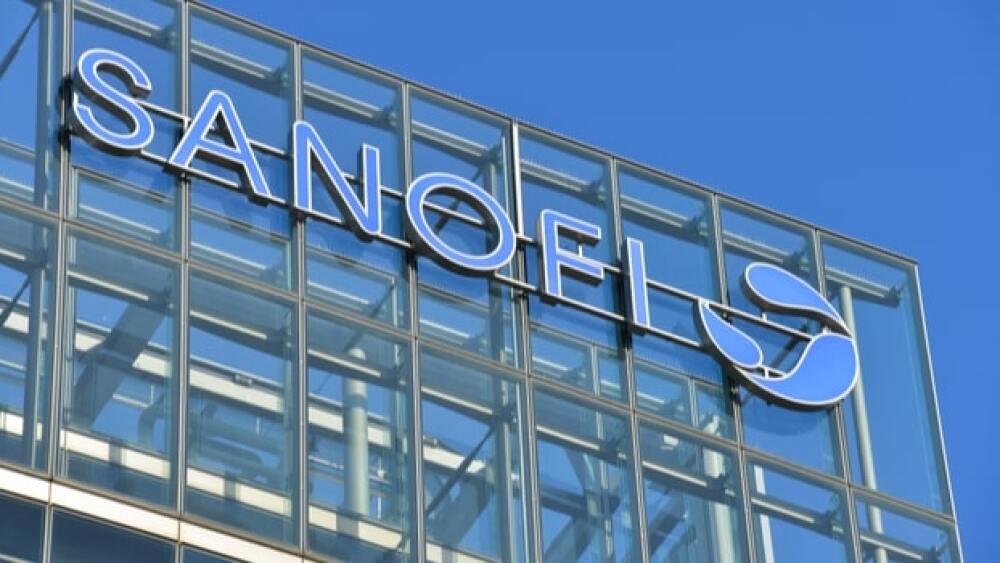Paris-based Sanofi announced its Phase III PEGASUS clinical trial of rilzabrutinib for pemphigus failed to hit primary or key secondary endpoints.
nitpicker/Shutterstock
Paris-based Sanofi announced that its Phase III PEGASUS clinical trial of rilzabrutinib for pemphigus failed to hit the primary or key secondary endpoints. Sanofi picked up the drug when it acquired South San Francisco-based Principia Biopharma in August 2020 for $3.68 billion.
Rilzabrutinib is an oral BTK inhibitor. Pemphigus is a rare, debilitating autoimmune disorder that results in blisters on the skin and mucous membranes. The trial’s primary endpoint was complete remission from weeks 29 to 37 with minimal doses of corticosteroids. The data shows that there was no significant difference between rilzabrutinib and placebo.
“While these results are disappointing, we believe the rilzabrutinib clinical program holds great potential to address the unmet treatment needs of people living with immune-mediated diseases,” said Naimish Patel, M.D., head of Global Development, Immunology and Inflammation, for Sanofi. “Our mission is to improve outcomes by exploring new scientific approaches and novel therapies to advance the standard of care. We are committed to investigating rilzabrutinib further and progressing our clinical programs forward to deliver new treatment options for patients.”
Because the BTK enzyme has a significant role in a variety of immune processes, including B cell expansion, the production of immunoglobulins, and activation of cells of the innate immune system, such as mast cells, eosinophils, and basophils, the drug has the potential for a wide range of autoimmune disease, including rheumatoid arthritis and chronic spontaneous urticaria. Sanofi is studying the drug in a Phase III trial for immune thrombocytopenia, a rare blood disease, and a Phase II trial for IgG4-related disease. The company plans for Phase II studies to begin this year in asthma, atopic dermatitis, chronic spontaneous urticaria and warm autoimmune hemolytic anemia.
When Sanofi acquired Principia, in addition to rilzabrutinib, it picked up another BTK inhibitor, ’168, which is being developed for multiple sclerosis, and PRN473 Topical, for immune-mediated diseases that would benefit from localized treatment to the skin.
Yesterday, Sanofi announced it was acquiring New York-based Kadmon Holdings for about $1.9 billion. The deal is intended to grow Sanofi’s general medicines core assets. Kadmon has a recently approved drug, Rezurock (belumosudil), a first-in-class drug for chronic graft-versus-host disease (cGVHD) for adults and pediatric patients 12 years and older who have failed at least two previous lines of systemic therapy.
“We are excited that Sanofi has acknowledged the value of Rezurock and the deep potential of our pipeline,” said Harlan Waksal, M.D., president and chief executive officer of Kadmon. “By leveraging Sanofi’s global resources and long-standing expertise in developing and commercializing innovative medicines, Rezurock is now well-positioned for global accessibility, faster. I want to thank the entire Kadmon team, including management and the Board of Directors, and the Sanofi organization, for their ongoing commitment to patients and their caregivers.”
Kadmon’s pipeline compounds include drugs for immune and fibrotic diseases and immuno-oncology treatments.
In early August, the U.S. Food and Drug Administration (FDA) approved Sanofi’s Nexviazyme (avalglucosidase alfa-ngpt) for late-onset Pompe disease in patients one year and older. Pompe disease is a progressive and debilitating muscle disorder that damages a person’s ability to move and breathe. The drug is an enzyme replacement therapy (ERT) that targets the mannose-6-phosphate (M6P) receptor.





